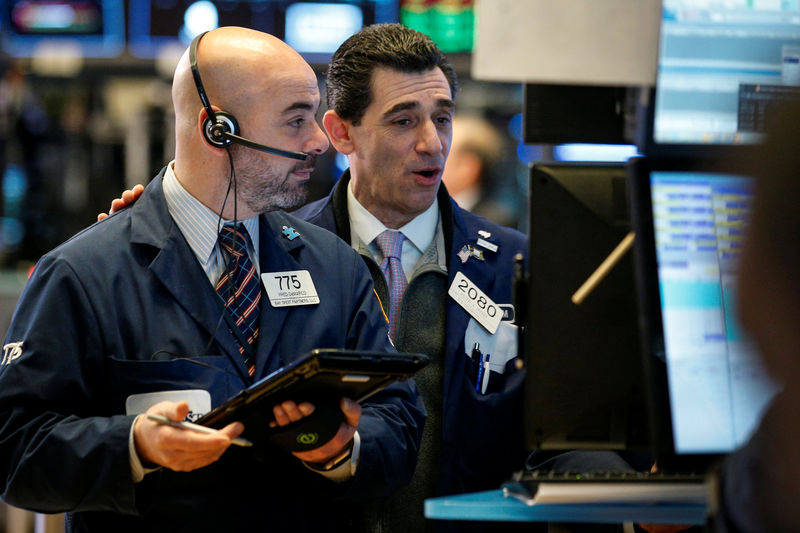By Lewis Krauskopf
NEW YORK (Reuters) - Investors are optimistic that a pickup in corporate acquisitions stands to support the volatile U.S. stock market, and does not represent a worrisome cyclical sign.
Global mergers and acquisitions have had their strongest start to a year ever, according to data from Thomson Reuters Deals Intelligence. The $1.23 trillion in first-quarter global deal-making came in just shy of the $1.31 trillion in the fourth quarter of 2015, which on a quarterly basis marked a multi-year high.
However, heightened deal-making could be an ominous signal, if it suggests companies are desperate to find growth as the economic expansion winds down, or if it indicates a euphoria echoed among stock investors. For example, global M&A on a quarterly basis hit multi-year peaks in 2000 and in 2007, preceding sustained stock market declines.
But market watchers told Reuters they see other reasons for the latest rise in mergers and acquisitions – including incentives from U.S. tax reform and the desire to take advantage of still relatively low interest rates – and instead view the M&A pop as positive for stocks.
"It’s a sign we’re late in the cycle and it eventually gets worrisome," said Jeffrey Kleintop, chief global investment strategist at Charles Schwab (NYSE:SCHW) in Boston. "But in the near term it’s probably a plus in that you get deal premiums and more money employed in taking equity out."
For an interactive graphic on global deal-making, click http://fingfx.thomsonreuters.com/gfx/editorcharts/USA-STOCKS-DEALS/0H0010QM0JY/index.html
At a time when some on Wall Street worry stocks are trading at expensive valuation levels, investors said the willingness by companies to make purchases is encouraging.
"To the extent you can get cash deals done, it provides a lot of support for the market," said Rick Meckler, president of investment firm LibertyView Capital Management in Jersey City, New Jersey.
"It takes out equities, where holders are likely to reinvest in other stocks, and helps re-establish that the prices that stocks are trading at are not too high."
Global quarterly deal-making hit a record $1.42 trillion in the second quarter of 2007. Several months later the S&P 500 began a decline that eventually cut the benchmark index by more than half as the U.S. economy sank into one of the worst recessions in decades.
King Lip, chief investment strategist at Baker Avenue Asset Management in San Francisco, recalls that 2007 M&A spree as fueled by debt, and at the time, there were other signs the economic expansion cycle was ending, as opposed to now.
"I just think we are not at that point in the cycle," Lip said. "I still think we are mid-cycle in terms of this recovery."
Indeed, investors point to overall strength in the economy, including S&P 500 profits expected to rise about 20 percent this year.
Another factor that separates the current climate is the recently enacted U.S. tax law, which cuts the corporate rate to 21 percent from 35 percent and includes a tax break for multi-national companies to bring back profits stored overseas.
"I just view this increase in M&A more so related to the increased levels of cash that tax reform is producing," said Lindsey Bell, investment strategist at CFRA Research in New York.
While the spike in deal-making can indicate too much euphoria in the market, the lack of other indicators also pointing toward over-confidence suggests M&A could be an outlier in this respect, says Stephen Massocca, managing director at Wedbush Securities in San Francisco.
M&A is "more positive than negative right now," Massocca said. "If everything was over-euphoric, and people were more and more positive, then I would think it is a more dangerous indicator than it is today."
